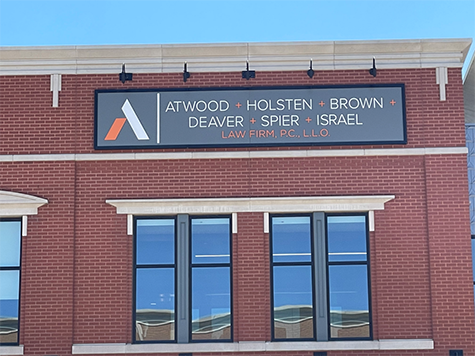Vocational rehabilitation services are an important aspect of Nebraska’s workers’ compensation laws. The goal of vocational rehabilitation services is to assist an injured worker with a prompt return to gainful, suitable employment. If an injury leaves a worker with permanent physical restrictions which prevent a return to the job held at the time of injury, she/he may qualify for vocational rehabilitation services under the Nebraska Workers’ Compensation Act. Importantly, in order to be considered appropriate employment, or “gainful employment” as labeled in the Act, available job opportunities must compensate the injured worker at or near the level of compensation received by the employee at the time of the work-related injury. This means that an injured worker with permanent restrictions does not have to accept post-accident employment at a reduced rate of compensation.
If an injured worker qualifies for vocational rehabilitation services, she/he will work with an agreed-upon or court-appointed Vocational Rehabilitation Counselor to identify aptitudes, interests, and available employment opportunities. The Vocational Rehabilitation Counselor will then identify what steps are necessary to re-employ the injured worker at or near her/his pre-accident wage rate. Vocational rehabilitation counselors are bound to follow a hierarchy when identifying the appropriate vocational rehabilitation plan, as follows:
- Return to the previous job with the same employer;
- Modification of the previous job with the same employer;
- A new job with the same employer;
- A new job with a new employer; or
- A period of formal training which is designed to lead to employment in another career field.
Vocational rehabilitation counselors often assist with resume preparation, job applications, interviewing skills, etc. If necessary, formal retraining can and often does include educational programs, such as a GED program, Associate’s Degree, or even Bachelor’s or Master’s Degrees in certain circumstances. The costs associated with the particular vocational rehabilitation plan are paid from a State fund. Importantly, an injured worker participating in a court-approved vocational rehabilitation plan receives temporary total disability benefits payments on a weekly basis for the duration of the plan, paid at two-thirds of the injured worker’s gross wages earned in the 26 weeks prior to the date of her/his accident. This allows the injured worker to receive an income while focusing efforts on successful completion of the vocational rehabilitation plan.
Vocational rehabilitation services are available to injured workers irrespective of the location of or type of injury involved in a particular case. Spine injuries, nerve damage, closed head injuries, traumatic brain injuries, and mental injuries can qualify an injured worker for vocational rehabilitation services. As can injuries to fingers, hands, feet, eyes, ears, or any other body system, so long as the injury results in permanent physical restrictions which prevent a return to the job held at the time of the injury.











